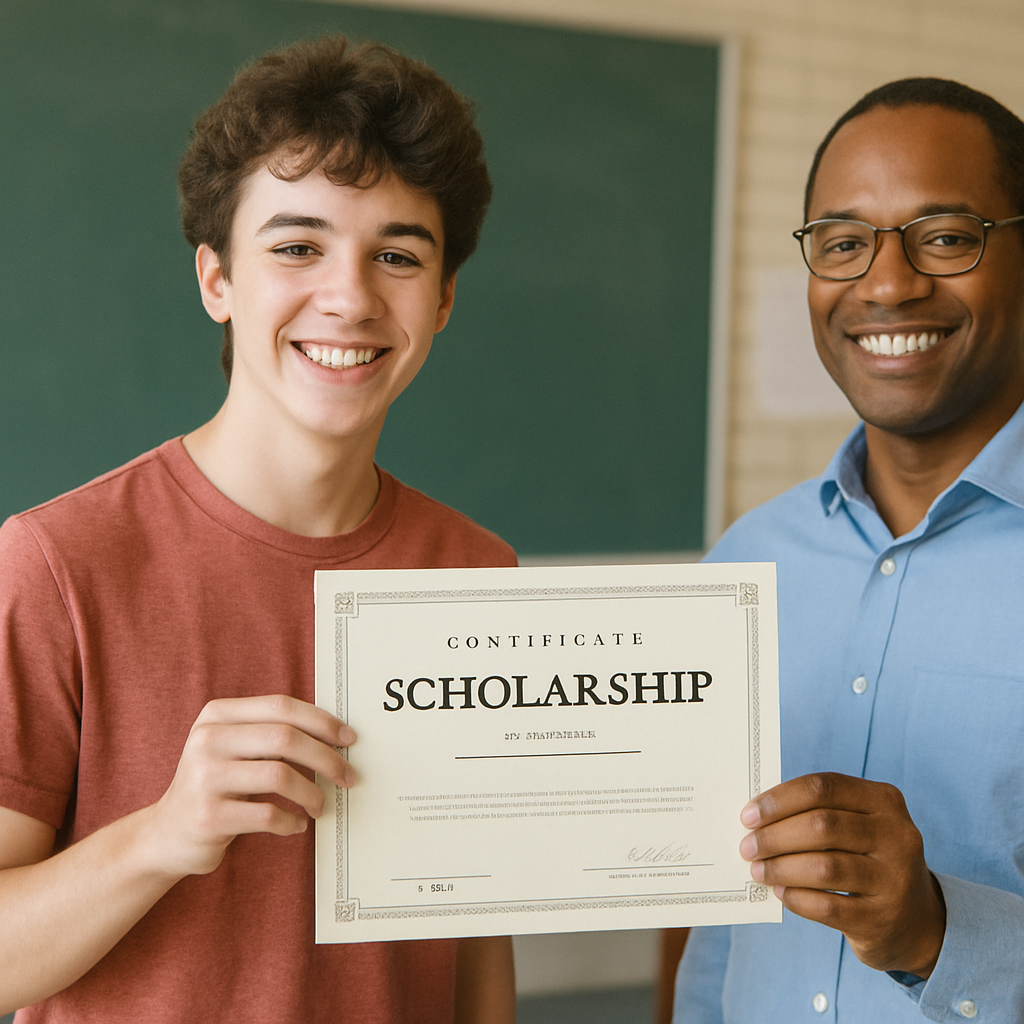Individual giving dropped by 6.4% during this time, yet foundation grants remained stable through economic changes. Writing grants requires organizations to analyze their audience, gather data, build compelling stories, and submit polished proposals. Success depends on strong research abilities and persuasive writing skills that show how projects will benefit communities.
Grants go to organizations based on merit, not just need. This makes becoming skilled at proposal writing significant. A strong grant proposal has sections about the organization’s background, project details, story, budget, and ways to measure success. The nonprofit sector gets nearly 31.8% of its revenue from government sources. Organizations need to understand the simple mechanics of grant writing to vary their funding in today’s uncertain economy.

What is Grant Writing and Why It Matters
Grant writing drives the economic engine that powers research and services in many sectors. Organizations craft persuasive proposals to get funding from institutions that provide financial support without asking for repayment. Grants offer a unique funding source that organizations can use to run programs, deliver services, and achieve their missions.
Definition and purpose of grant writing
Grant writing includes research, drafting, and submission of proposals to receive financial awards that support specific projects or programs. The main goal goes beyond just getting money—it helps organizations turn their ideas into reality. A well-crafted grant proposal can transform organizational needs into compelling funding applications that make influential projects possible.
Grants are awarded based on merit rather than need. The Grantsmanship Center states that “the point of a grant award is impact rather than money.” This shows how nonprofits use grants as tools to deal with critical issues in their communities.
What does a grant writer do?
Grant writers serve as documentation specialists and salespeople for their organizations. Their responsibilities include:
- Researching suitable funding opportunities
- Arranging organizational objectives with grant requirements
- Preparing multiple drafts with persuasive language
- Building realistic budgets for proposed projects
- Gathering necessary documentation
- Submitting completed proposals
Grant writers also build vital relationships with organization partners and work closely with the core team to design detailed strategies for funding success. A well-laid-out application typically takes three to four weeks to complete, though experienced writers might finish proposals faster in familiar sectors.
Types of organizations that use grant writing
Organizations of all types depend on grant writing to sustain their operations:
- Nonprofit organizations/public charities with IRS-recognized status
- Educational institutions
- Government agencies
- Tribal organizations
- Faith-based organizations providing direct social services
- Unincorporated community groups with fiscal sponsors
- Local governments
Nonprofits particularly benefit from grants as they provide a stable and predictable revenue stream. This helps cover costs, launch new initiatives, and reach new audiences. Many organizations don’t deal very well with maintaining their programs without this vital funding. Some might even need to reduce their services substantially.
Understanding the Grant Proposal Structure
A grant proposal blueprint helps you communicate your project’s value to potential funders. A well-laid-out proposal shows professionalism and boosts your chances of getting funding through clear presentation of ideas.
What is a grant proposal?
A grant proposal convinces a funding organization to support your project or program. The document presents a logical flow that explains your project’s need, describes your approach, and details who’ll do the work. Your proposal must show reviewers that you have a solid plan to advance a worthy cause and can execute it successfully.
Key components of a proposal
Grant proposals typically have these standard sections that funders look for:
- Abstract/Executive Summary: A brief overview (usually one page) showing who you are, the problem you’ll solve, your goals, and the funding you need
- Need Statement: A clear definition of your project’s problem or need, backed by evidence and data
- Goals and Objectives: Specific, measurable outcomes from your project
- Implementation Plan: A detailed breakdown of activities, timeline, and responsibilities
- Budget: Itemized costs that justify each expense
- Evaluation Plan: Ways to measure success and assess your project’s effect
Common mistakes in proposal writing
Grant reviewers point out several errors that can sink applications. Not following instructions tops the list and signals carelessness right away. Other mistakes come off the top of my head: unclear goals, not enough preliminary data to prove feasibility, and weak budget justifications.
Many applications don’t deal very well with showing why the work matters. Some dive too deep into experimental details yet miss critical information about approaches. On top of that, proposals full of typos and grammar mistakes leave a bad impression. These errors suggest the project might suffer from the same lack of attention.
The Grant Writing Process Step-by-Step
Grant writers can turn ideas into fundable projects by following a clear process. A step-by-step approach helps writers direct their efforts and tackle what might seem like a daunting task.
1. Research and identify funding opportunities
Start by learning about databases built for grant seekers. You’ll find searchable catalogs of available funding through resources like Pivot (with about $44 billion in grants), Foundation Directory Online, and Grants.gov. Field-specific databases like NIH Research Portfolio give targeted opportunities for specialized areas. Take time to learn which funders’ missions match your project goals before starting applications.
2. Understand the funder’s guidelines
After finding potential funders, get into their application requirements. One grant expert puts it well: “Read the guidelines carefully, then read them again.” Focus on eligibility criteria, submission deadlines, funding priorities, and evaluation processes. Program officers can help with questions – many funders give technical help and review proposal drafts.
3. Draft the proposal narrative
Create a “narrative skeleton” with headers that match the funder’s requirements. Your specific aims or objectives should come first, then build the rest around them. Keep your language clear and direct with short paragraphs. Bold text can highlight key concepts effectively. Write in active voice (“We will develop”) rather than passive voice (“It will be developed”) to show who does what.
4. Build a realistic project budget
Your detailed budget should back up all expenses and match your narrative. List personnel costs (salaries/benefits), travel, equipment, supplies, and indirect costs when allowed. Specific figures work better than round numbers – “$1,280” instead of “$1,000” shows precise calculation.
5. Gather required attachments
Strong applications need good supporting materials. Most common attachments are organizational documents (501(c)(3) letter, board list), financial information (budgets, audited statements), and supporting evidence (letters of support, relevant data).
6. Review and submit the proposal
A full review should happen before you submit your application – at least one day early. Someone who doesn’t know your project can spot errors, inconsistencies, or unclear sections best.
Tips for Beginners to Succeed in Grant Writing
Becoming skilled at grant writing takes practice and specific skills. New writers can develop these abilities through well-considered techniques. These basic approaches help beginners grow from novices into confident proposal developers.
Start with a real or sample project
Writers who are just starting out learn better with concrete examples instead of theoretical concepts. You should look at successful grant proposals in your field to understand what works. Many sponsors and agencies post their funded proposals online, which creates valuable learning opportunities. Your original practice with a sample project lets you build skills without the pressure of actual submission deadlines.
Practice clear and concise writing
Clear writing is the life-blood of effective grant proposals. Writing experts say readers can process sentences of 20 words or less by a lot easier. Active voice (“We will develop an experiment”) works better than passive voice (“An experiment will be developed”) to show who does what. You want to write short, impactful sentences that keep readers interested. Your topic sentences should lead each paragraph to improve readability and help reviewers track your logic.
Use storytelling to build connection
A good narrative turns abstract ideas into compelling human stories. You can include a case study about a real client your organization has helped to show actual need. This makes your proposal stand out among hundreds of applications. Good storytelling keeps everything balanced and concrete, which prevents your ideas from becoming too abstract and losing the reviewers’ attention.
Avoid jargon and explain technical terms
Technical language can create a wall between you and your readers. Reviewers might struggle to see your proposal’s value in such cases. Note that not every reviewer will be an expert in your field. You should write for both experts and beginners—showing experienced reviewers your knowledge while helping less specialized reviewers understand why your project matters.
Seek feedback and revise really well
Good editing turns decent proposals into outstanding ones. You should put your draft aside for a few days before final submission to look at it with fresh eyes. On top of that, ask colleagues or outside readers to give honest feedback about clarity and impact. Their view helps catch unclear points or mistakes you might have missed.
The Future of Grant Writing: Why This Skill Is in Demand
Grant writing has become more complex and competitive as we approach 2025. The U.S. has approximately 1.51 million nonprofit organizations competing for funding with only about 10,546 hired grant writers. This creates a substantial need—roughly 143 nonprofits compete for every grant writer.
The grant writing profession faces constant changes. Modern funders give priority to measurable impact and require evidence-based approaches with tangible outcomes. Successful grant writers must now include quantitative and qualitative data in their proposals. Funders need solid evidence that initiatives will produce measurable outcomes.
Technology integration plays a vital role in modern grant writing. The market for grant management software will grow over 10% in the next five years, and cloud-based solutions will outperform computer-based options. Organizations that use technology to boost programs and optimize efficiency attract more funder interest.
Diversity, equity, and inclusion (DEI) represents another major change. Funders in 2025 prioritize initiatives that address systemic inequalities, though the appropriate framing of DEI language continues to evolve.
Collaboration has become a core strategy, and funders support initiatives that show partnerships between multiple organizations. The ability to adapt to changing funder priorities remains vital as society’s needs evolve.
Grant writing offers excellent career opportunities in spite of these challenges. Grant writers earn approximately $75,853 annually, while consultants can make $100,000+. The U.S. Bureau of Labor Statistics projects a 2% decline for writers generally. However, grant writing’s specialized nature—combined with nonprofits’ ongoing funding needs—creates steady demand for skilled professionals who can guide through this changing environment.
Make Grant Writing Your Most Powerful Funding Strategy
Understanding what grant writing is unlocks a vital skill every mission-driven organization needs to thrive. More than just paperwork, grant writing is the engine that transforms vision into impact—helping nonprofits, educators, and change-makers secure the funding they need to grow and serve.
But crafting a winning proposal takes more than good intentions. It takes clarity, strategy, and persuasive storytelling aligned with funders’ priorities.
At Allied Grant Writers, we specialize in developing proposals that not only check all the boxes—but inspire action. From identifying funders to submitting polished applications, we’re here to help you win grants and drive your mission forward.
Need help writing a grant?
Explore our professional grant writing services and secure your next opportunity with confidence.





